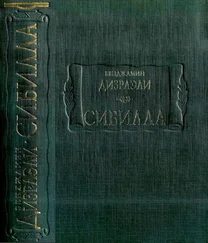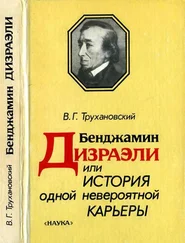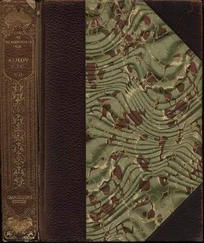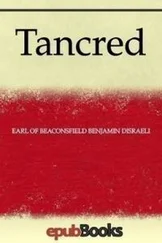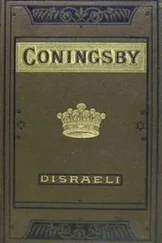The summit is gained; the tactics alter: here Pavis brings up Caravan, with extraordinary severity,—the pace round Tattenham corner terrific; Caravan leading, then Phosphorus a little above him, Mahometan next, Hybiscus fourth. Rat–trap looking badly, Wisdom, Benedict and another handy. By this time Pocket Hercules has enough, and at the road the tailing grows at every stride. Here the favourite himself is hors de combat, as well as Dardanelles, and a crowd of lesser celebrities.
There are now but four left in the race, and of these, two, Hybiscus and Mahometan, are some lengths behind. Now it is neck and neck between Caravan and Phosphorus. At the stand Caravan has decidedly the best, but just at the post, Edwards, on Phosphorus, lifts the gallant little horse, and with an extraordinary effort contrives to shove him in by half a length.
"You look a little low, Charley," said Lord Fitzheron, as taking their lunch in their drag he poured the champagne into the glass of Egremont.
"By Jove!" said Lord Milford, "Only think of Cockie Graves having gone and done it!"
Egremont was the younger brother of an English earl, whose nobility being of nearly three centuries' date, ranked him among our high and ancient peers, although its origin was more memorable than illustrious. The founder of the family had been a confidential domestic of one of the favourites of Henry the Eighth, and had contrived to be appointed one of the commissioners for "visiting and taking the surrenders of divers religious houses." It came to pass that divers of these religious houses surrendered themselves eventually to the use and benefit of honest Baldwin Greymount. The king was touched with the activity and zeal of his commissioner. Not one of them whose reports were so ample and satisfactory, who could baffle a wily prior with more dexterity, or control a proud abbot with more firmness. Nor were they well–digested reports alone that were transmitted to the sovereign: they came accompanied with many rare and curious articles, grateful to the taste of one who was not only a religious reformer but a dilettante; golden candlesticks and costly chalices; sometimes a jewelled pix; fantastic spoons and patens, rings for the fingers and the ear; occasionally a fair–written and blazoned manuscript—suitable offering to the royal scholar. Greymount was noticed; sent for; promoted in the household; knighted; might doubtless have been sworn of the council, and in due time have become a minister; but his was a discreet ambition—of an accumulative rather than an aspiring character. He served the king faithfully in all domestic matters that required an unimpassioned, unscrupulous agent; fashioned his creed and conscience according to the royal model in all its freaks; seized the right moment to get sundry grants of abbey lands, and contrived in that dangerous age to save both his head and his estate.
The Greymount family having planted themselves in the land, faithful to the policy of the founder, avoided the public gaze during the troubled period that followed the reformation; and even during the more orderly reign of Elizabeth, rather sought their increase in alliances than in court favour. But at the commencement of the seventeenth century, their abbey lands infinitely advanced in value, and their rental swollen by the prudent accumulation of more than seventy years, a Greymount, who was then a county member, was elevated to the peerage as Baron Marney. The heralds furnished his pedigree, and assured the world that although the exalted rank and extensive possessions enjoyed at present by the Greymounts, had their origin immediately in great territorial revolutions of a recent reign, it was not for a moment to be supposed, that the remote ancestors of the Ecclesiastical Commissioner of 1530 were by any means obscure. On the contrary, it appeared that they were both Norman and baronial, their real name Egremont, which, in their patent of peerage the family now resumed.
In the civil wars, the Egremonts pricked by their Norman blood, were cavaliers and fought pretty well. But in 1688, alarmed at the prevalent impression that King James intended to insist on the restitution of the church estates to their original purposes, to wit, the education of the people and the maintenance of the poor, the Lord of Marney Abbey became a warm adherent of "civil and religious liberty,"—the cause for which Hampden had died in the field, and Russell on the scaffold,—and joined the other whig lords, and great lay impropriators, in calling over the Prince of Orange and a Dutch army, to vindicate those popular principles which, somehow or other, the people would never support. Profiting by this last pregnant circumstance, the lay Abbot of Marney also in this instance like the other whig lords, was careful to maintain, while he vindicated the cause of civil and religious liberty, a very loyal and dutiful though secret correspondence with the court of St Germains.
The great deliverer King William the Third, to whom Lord Marney was a systematic traitor, made the descendant of the Ecclesiastical Commissioner of Henry the Eighth an English earl; and from that time until the period of our history, though the Marney family had never produced one individual eminent for civil or military abilities, though the country was not indebted to them for a single statesman, orator, successful warrior, great lawyer, learned divine, eminent author, illustrious man of science, they had contrived, if not to engross any great share of public admiration and love, at least to monopolise no contemptible portion of public money and public dignities. During the seventy years of almost unbroken whig rule, from the accession of the House of Hanover to the fall of Mr Fox, Marney Abbey had furnished a never–failing crop of lord privy seals, lord presidents, and lord lieutenants. The family had had their due quota of garters and governments and bishoprics; admirals without fleets, and generals who fought only in America. They had glittered in great embassies with clever secretaries at their elbow, and had once governed Ireland when to govern Ireland was only to apportion the public plunder to a corrupt senate.
Notwithstanding however this prolonged enjoyment of undeserved prosperity, the lay abbots of Marney were not content. Not that it was satiety that induced dissatisfaction. The Egremonts could feed on. They wanted something more. Not to be prime ministers or secretaries of state, for they were a shrewd race who knew the length of their tether, and notwithstanding the encouraging example of his grace of Newcastle, they could not resist the persuasion that some knowledge of the interests and resources of nations, some power of expressing opinions with propriety, some degree of respect for the public and for himself, were not altogether indispensable qualifications, even under a Venetian constitution, in an individual who aspired to a post so eminent and responsible. Satisfied with the stars and mitres and official seals, which were periodically apportioned to them, the Marney family did not aspire to the somewhat graceless office of being their distributor. What they aimed at was promotion in their order; and promotion to the highest class. They observed that more than one of the other great "civil and religious liberty" families,—the families who in one century plundered the church to gain the property of the people, and in another century changed the dynasty to gain the power of the crown,—had their brows circled with the strawberry leaf. And why should not this distinction be the high lot also of the descendants of the old gentleman usher of one of King Henry's plundering vicar–generals? Why not? True it is, that a grateful sovereign in our days has deemed such distinction the only reward for half a hundred victories. True it is, that Nelson, after conquering the Mediterranean, died only a Viscount! But the house of Marney had risen to high rank; counted themselves ancient nobility; and turned up their noses at the Pratts and the Smiths, the Jenkinsons and the Robinsons of our degenerate days; and never had done anything for the nation or for their honours. And why should they now? It was unreasonable to expect it. Civil and religious liberty, that had given them a broad estate and a glittering coronet, to say nothing of half–a–dozen close seats in parliament, ought clearly to make them dukes.
Читать дальше

